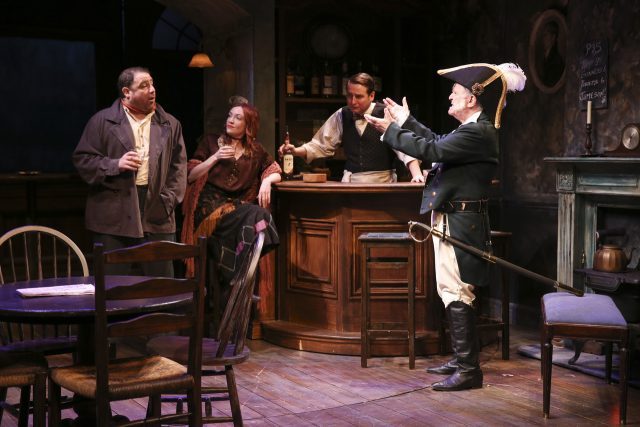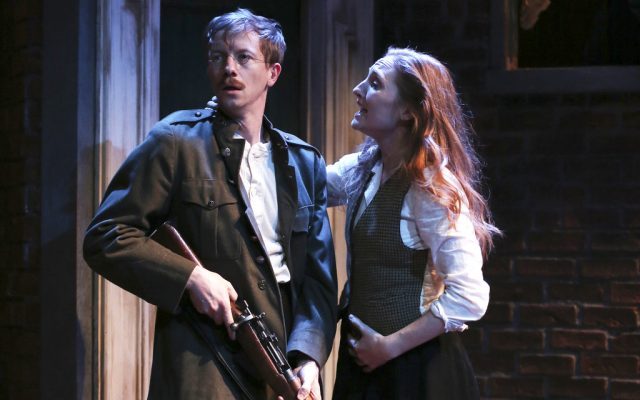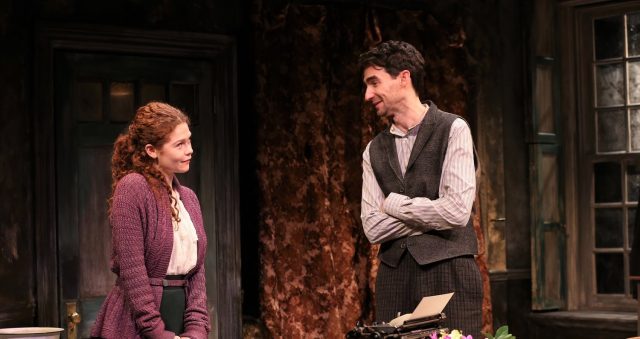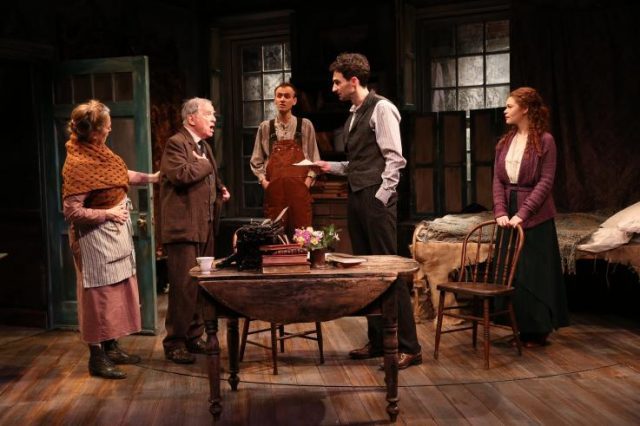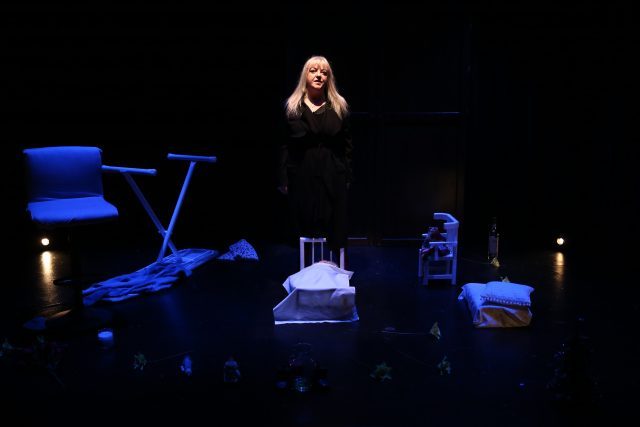
Michelle Dooley Mahon’s The Scourge tells of a woman reliving her mother’s battle with Alzheimer’s (photo by Carol Rosegg)
2021 ORIGIN 1st IRISH THEATRE FESTIVAL
January 11-31, free – $10 per event
www.origintheatre.org
The thirteenth annual Origin 1st Irish Theatre Festival has been reimagined for its 2021 iteration, a three-week collection of theatrical dramas ($10), fiction and nonfiction films ($5), and free panel discussions shedding light on the current state of Irish theater. Curated by actors Mick Mellamphy and Sarah Street, the festivities kick off January 11 with the opening ceremony on Zoom and Fishamble’s Mustard, Eva O’Connor’s one-woman Edinburgh Fringe play about a woman who falls hard for a Tour de France competitor. “The cyclist knows nothing of the madness in my bones or the mustard in my mind,” the character says. The other plays are the Wexford Arts Center’s production of Michelle Dooley Mahon’s one-woman The Scourge, an Alzheimer’s story directed by Ben Barnes; Darren Murphy’s deeply moving The Gifts You Gave to the Dark, the Irish Rep tale told over a smartphone, one of the first live works dealing with Covid-19; Origin’s Under the Albert Clock, comprising monologues by five playwrights from Northern Ireland (Emily Dedakis, Gina Donnelly, Sarah Gordon, Fionnuala Kennedy, and Alice Malseed) set around the historic Albert Clock in Belfast in 2050; About Face Ireland’s Zoom presentation Transatlantic Tales, eight original works by Matthew Cole Kelly, Melissa Annis, James McLindon, Rachel White, Emily Bohannon, Krystal Sweedman, Seamus Scanlon, and Neil Sharpson, each pairing one actor in Ireland and one in America (Amie Tedesco, Kathleen Warner Yeates, Brandon Jones, Helena White, Kevin Collins, Darina Gallagher, Orlagh Cassidy, Mark Tankersley, Erin Healani Chung, Michael Rhodes, David Ryan, John Keating, Megan Day, Kate Grimes, Paul Nugent, Richard Topol, and Maureen O’Connell); and Origin’s Stay Home and Stay Safe, four short pieces by Geraldine Aaron, Honor Molloy, Derek Murphy, and Ursula Rani Sarma about domestic violence during the pandemic, with Angel Desai, Alan Kelly, Niamh Hopper, David Spain, and Jade Jordan.
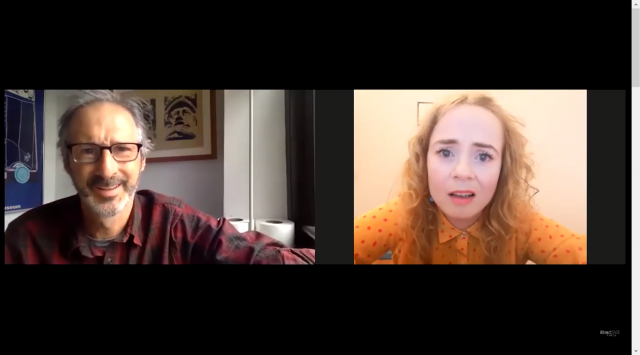
Richard Topol and Maureen O’Connell star in one of five short Zoom plays that comprise Transatlantic Tales
In addition to three showings of each play, there will be two screenings of each film, which explore unemployed actors going on a camping trip (O’Connell’s Spa Weekend), a possible miracle (Aislinn Clarke’s The Devil’s Doorway), what happens when your horse comes in (Seanie Sugrue’s Misty Button), the 1998 Good Friday Agreement (Rory Duffy’s A Fragile Peace), an incident in the Irish War of Independence (Conal Creedon’s The Burning of Cork), and a 1905 journey across Connemara by John Millington Synge and Jack B. Yeats (Margy Kinmonth’s To the Western World). There will also be five panel discussions that will stream twice; the full schedule is below.
Monday, January 11
Opening Ceremony, 3:00
Friday, January 15
“Irish Redemption — An Irish Invasion into the World of Video Games,” with Roger Clarke and Penny O Brien, 8:00
Sunday, January 17
“Producing in a Pandemic,“ offering first looks at new works, with Aoife Williamson, Derek Murphy, Tim Ruddy, David Gilna, and Lorna Fenenbock, 8:00
Monday, January 18
“Black&Irish,” focusing on diversity and inclusion in Irish arts and culture, with Femi Bankole, Leon Diop, Bonni Odoemene, Jade Jordan, and Zainab Boladale, 8:00
Wednesday, January 20
“Casting and the Irish Perspective,” with Christine McKenna Tirella, 3:00
“The Irish Tunes of Tin Pan Alley,” with Mick Moloney and Larry Kirwan, 8:00
Friday, January 22
“Irish Redemption — An Irish Invasion into the World of Video Games,” with Roger Clarke and Penny O Brien, 3:00
Saturday, January 23
“Producing in a Pandemic,“ offering first looks at new works, with Aoife Williamson, Derek Murphy, Tim Ruddy, David Gilna, and Lorna Fenenbock, 3:00
Monday, January 25
“Casting and the Irish Perspective,” with Christine McKenna Tirella, 8:00
Wednesday, January 27
“The Irish Tunes of Tin Pan Alley,” with Mick Moloney and Larry Kirwan, 3:00
Saturday, January 30
“Black&Irish,” focusing on diversity and inclusion in Irish arts and culture, with Femi Bankole, Leon Diop, Bonni Odoemene, Jade Jordan, and Zainab Boladale, 3:00
Saturday, January 31
Closing Ceremony, 5:00
